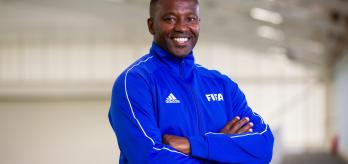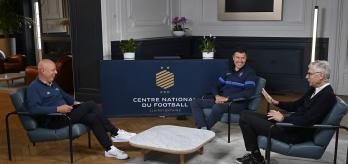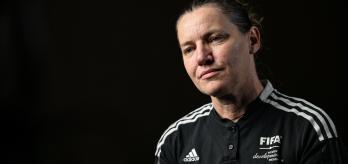PART 1 – THE FRENCH NATIONAL FOOTBALL CENTRE
00:55
Clairefontaine: the home of French football
Fournier reflects on the opening of the French national football centre in 1988 and discusses how the complex has subsequently established itself as a global point of reference. Nestled in the heart of a nature reserve and equipped with facilities of the very highest standard, the inauguration of the national football centre represented a game changer for French football.
02:22
France crowned world champions a decade after centre’s opening
Wenger and Fournier explain how the FFF has managed to get and stay a step ahead of the game when it comes to the training of players. Based on the centralisation of knowledge and infrastructure, the national football centre is a reference within world football, a status that owed in part to the range of activities hosted by the facility.
07:17
An asset in the training of elite players
While the national football centre primarily serves to bring together and train the best players, it also offers a space to reflect on the future development of the game, thanks in particular to the recently opened research centre.
PART 2 – FRANCE’S NATIONAL FOOTBALL INSTITUTE
00:22
National football institute
In addition to being home to the various French national teams, the national football centre houses the national football institute (INF), which offers basic and intermediate for level training for talented young players from across the Île-de-France region all year round. The INF boasts a host of illustrious alumni, including Thierry Henry and Kylian Mbappé.
05:30
Youth scouting in France
The French FA’s youth scouting and tracking system is a well-oiled machine. Over 300 technical consultants located throughout the country are tasked with implementing the FFF’s regional scouting strategy. Each year, the best players are selected to attend the 25 elite youth academies across France, with almost all of the country’s regions boasting an academy.
10:36
Key areas to develop from a very young age
Improving technique from the basic training stage is one of the guiding principles at the French national football centre and the FFF is committed to providing age-adapted training sessions.
PART 3 – THE ROLE OF YOUTH NATIONAL TEAMS IN TRAINING PLAYERS
00:28
Development principles across the youth national teams
Fournier sets out the specific characteristics of the French youth national teams, before describing the FFF’s efforts to instil a guiding narrative amongst its national-team coaches in terms of their working methods and communication.
02:36
Importance of international competitions
International tournaments offer national teams the opportunity to compete against the best. Fournier and Wenger underscore the importance of exposure to international football for young players and technical staff, drawing particular attention to the experience that it offers.
05:30
French national-team technical staff
Fournier and Wenger discuss the various roles within the national-team technical staff, including assistant coach, goalkeeping coach, video analyst and medical staff. These roles serve to support the national-team coach and all contribute to player development and ensuring overall improvement on a collective level.
PART 4 – CHARACTERISTICS OF YOUNG FRENCH PLAYERS, THEIR DEVELOPMENT POTENTIAL AND LEARNING JOURNEY
00:30
Changes and the talent pool
Fournier and Wenger explore the characteristics of young French players and the future generations, on both the domestic and international stage. One of the trends they identify is that young French players are debuting at an increasingly early age in both international and club football, citing the example of Bayern Munich’s Mathys Tel, who was part of France’s U‑17 European Championship-winning squad last year.
04:45
Player of the future
Martens, Fournier and Wenger analyse the qualities and profile of the player of the future, while noting that all aspects of football are constantly evolving, including the reading of the game, speed of execution and decision-making, and tactical understanding. Given the increasingly explosive and fast-paced nature of the sport, individual, mental and collective development are guaranteed to feature prominently in the training of players in years to come.
One of the main advantages of Clairefontaine is to be able to bring together the best to better educate and develop them



































